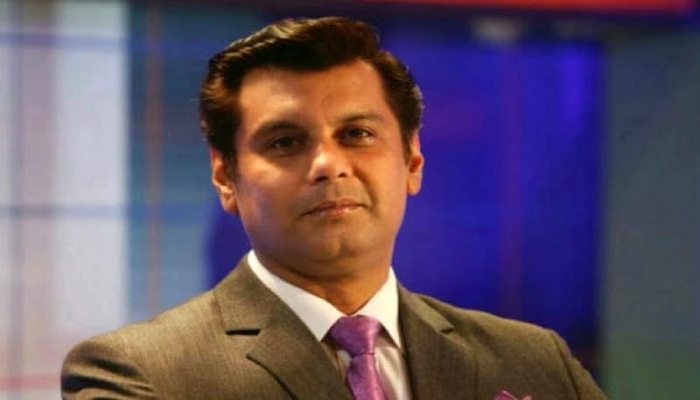US grapples with Pakistan’s Sharifs
0 comments | by Ambassador M K Bhadrakumar

US grapples with Pakistan’s Sharifs
By M K Bhadrakumar
The timing couldn’t have been more perfect. On the very same day that the United States Vice-President Joe Biden and Secretary of State John Kerry received the Pakistani army chief Gen. Raheel Sharif in Washington (here and here), Prime MInister Nawaz Sharif also received a VIP — a top Kremlin official Viktor Ivanov, the long-time deputy head of the presidential administration in Moscow and one of President Vladimir Putin’s closest aides.
Anyone who knows the Orwellian farm in Pakistan would know that the army chief is ‘more equal than others’ in the country’s hierarchy. The Americans definitely know. Which explains their motive to encourage Gen. Sharif to have a detour via the US when they heard he was due to travel to Brazil. The Americans didn’t send to him a formal invite for a second visit within the year (lest it upset Prime Minister Sharif), while they seized the opportunity to interact with the general through a 6-day sojourn on US soil at a time when from all recent accounts the Pakistani military has staged a ‘soft coup’ in the country.
In the event, Gen. Sharif received a red-carpet welcome that would have made military chiefs from elsewhere in the world go green with envy. However, back in Islamabad, Prime Minister Sharif (who had visited the US on an official visit hardly two months ago) understood its import, given Pakistan’s tortuous history of being America’s poodle in the region for decades. In a major foreign policy speech in Islamabad on Tuesday, his advisor on foreign affairs ( and de facto foreign minister) Sartaj Aziz made it clear to the ‘international community’ that times have changed. He underscored that in the backdrop of the “Geopolitical realignment” in Asian and global politics, Pakistan is no longer America’s exclusive ally. Aziz said:
Geo-political and Geo-strategic developments in the Asia-Pacific have been moving rapidly in the recent past. The US brought greater focus on the region by launching the ‘Asia Pivot’ in 2011. The Pivot… strengthens alliances with Japan, South Korea, India, ASEAN countries as well as Australia and the New Zealand… Likewise, China has unveiled the plans to revive the ancient Silk Road…China, having surpassed the United States in terms of purchasing power in 2014 is engaged in several diplomatic initiatives to boost the economic growth of the region and create a win-win situation for all the participants.
This Geo-political realignment has two dimensions which enhance its significance. One is the growing cooperation between Russia and China to develop trade and energy connectivity in Eurasia and second, the creation of several important new institutions like SCO, BRICS Bank, Asia Infrastructure Bank and Silk Road Fund. Pakistan is the regional roundabout located at the crossroads of South, Central and West Asia, Pakistan is uniquely located to gain from stability and peace in Asia as a whole. These expectations are based the China-Pakistan Economic Corridor or CPEC… The strategic port of Gwadar is the hub around which CPEC rotates.
Cooperation between Pakistan and China… is not against any other country. Pakistan seeks to establish and sustain long-lasting and mutually beneficial relationships with the global and regional players in Asia. Pakistan has the distinction of forging and maintaining Strategic Dialogue with both the US and China. We have vibrant and robust relations with another power in the region, i.e. Russia. From Pakistan’s perspective, China together with the United States and Russia, are important pillars in the newly emerging economic and security order of the region.
What Aziz left unsaid was that Pakistan would not accept the emergent quasi-alliance between the US and India or India’s ambitions as the pre-eminent power in South Asia. Pakistan just made available to China on a 42-year lease 2300 acres land in Gwadar, which has a naval base and where China is constructing a massive airport. Indeed, taking other trends in regional politics also into account – Russian-Iranian coordination in Syria, thaw in Russia-Pakistan relations, Pakistan’s refusal to join Saudi-led military intervention in Yemen against pro-Iranian Houthis and the overall upswing in Pakistan-Iran relations in recent years, etc. – the stage is being set for a strategic entente involving Russia, China, Iran and Pakistan.
No doubt, Washington watches with profound disquiet this “Geopolitical realignment”, which consolidates China’s strategic presence in the Indian Ocean and signifies a radical rethink in the Pakistani policies, distancing the country from its traditional role as the US’ key ally in the region, which would of course render ineffectual the US’ containment strategy against China (and Russia and Iran.)
Clearly, the entire US regional agenda in establishing military bases in Afghanistan and long-term NATO presence in the region might unravel if these trends gained traction following Pakistan’s impending induction into the SCO. Therefore, Washington’s overture to the Pakistani military leadership at this juncture should not really come as surprise. Interestingly, just ahead of the US visit, Gen. Sharif had also visited Riyadh where King Salman received him with exceptional warmth and cordiality.
In historical terms, Pakistani generals have been close to the Pentagon and the CIA (as well as the House of Saud) and the US’ regional strategies in the Cold War era effectively leveraged this. In the post-cold war decades, however, the 3-way US-Saudi-Pakistani tango began losing verve once Washington’s priorities changed following China’s rise as superpower and given India’s potential as an emerging power. Washington, perhaps, took Pakistan for granted, but at any rate, began brazenly ignoring its sensitivities regarding India.
Washington hoped to maintain a ‘de-hyphenated’ approach of keeping both Pakistan and India as its key partners. But the real world has butted in. Arguably, Prime Minister Narendra Modi could have resolved Washington’s dilemma by reaching out to Sharif, but the Hindu nationalist groups that mentor him and the hardliners in the Indian establishment expect nothing short of Pakistan’s capitulation.
All in all, Prime Minister Sharif, caught between the rock and a hard place, decided to throw a wrench at Washington’s best-laid plan to pander to the overvaulting political ambitions of Gen. Sharif, and, thereby encouraging him to reverse the tide of Pakistani policies to bring them back to their cold-war era moorings.
Without doubt, Washington knows only too well who Viktor Ivanov is – former KGB general who goes back a long way with President Vladimir Putin to the St- Petersburg days, ‘Afghan hand’ during the eighties, a highly influential voice in the making of Kremlin policies who is an authentic battle-hardened veteran warhorse of the Soviet era.
Prime Minister Sharif disclosed during the meeting with Ivanov on Thursday that he has invited Putin to visit Pakistan to inaugurate the Karachi-Lahore gas pipeline, which is being built with Russian funding. Did it come as ‘breaking news’ to Ivanov? Of course, not. But then, Sharif’s audience was the Oval Office in Washington. He signaled that Pakistan is choosing its own way in its supreme national interests and that is a choice Pakistan can well afford to make in today ‘s polycentric world order.





